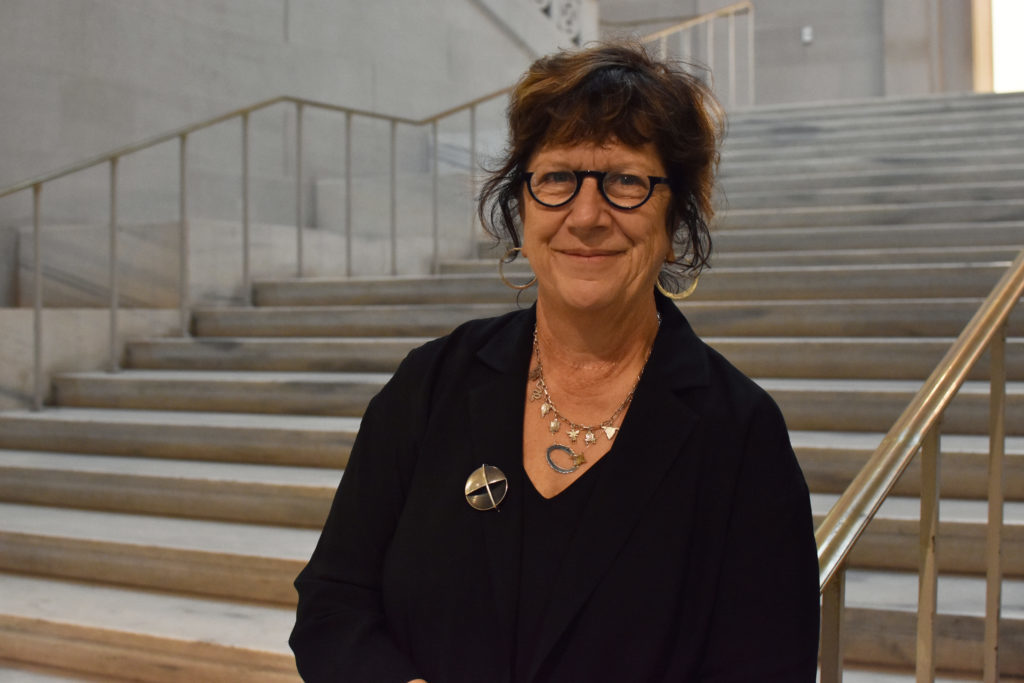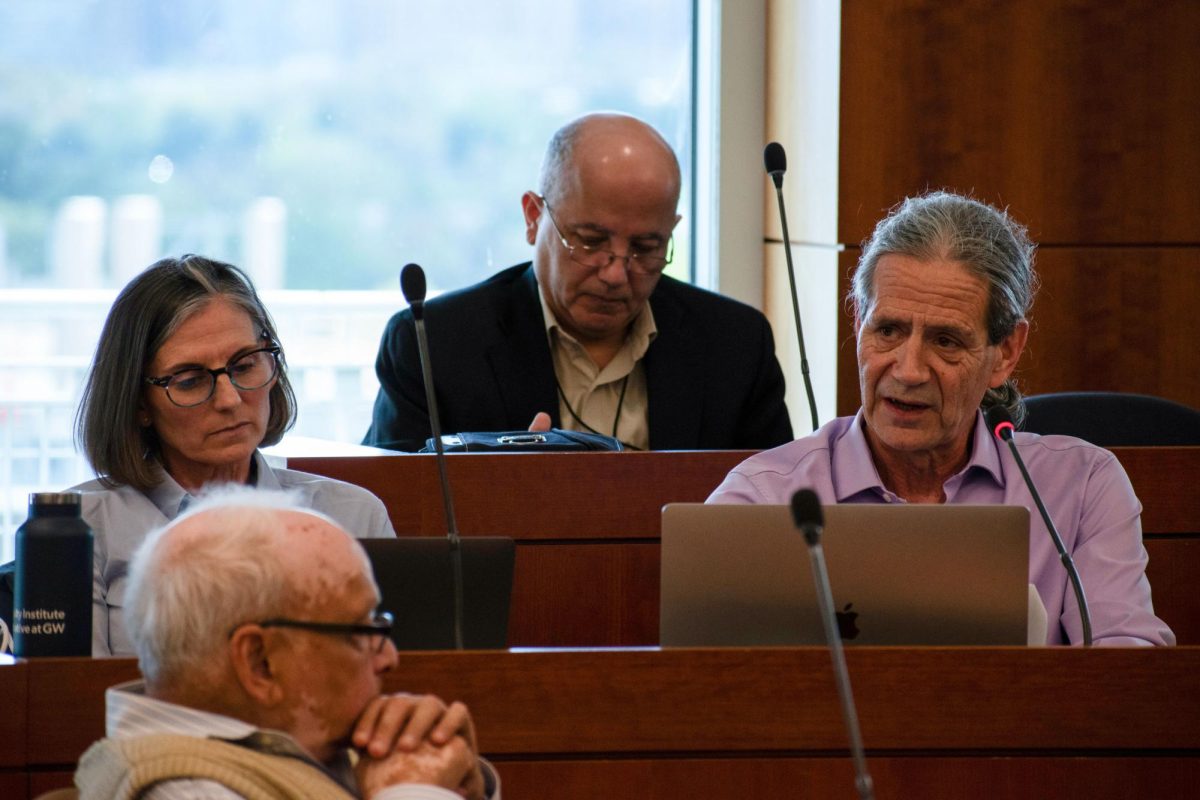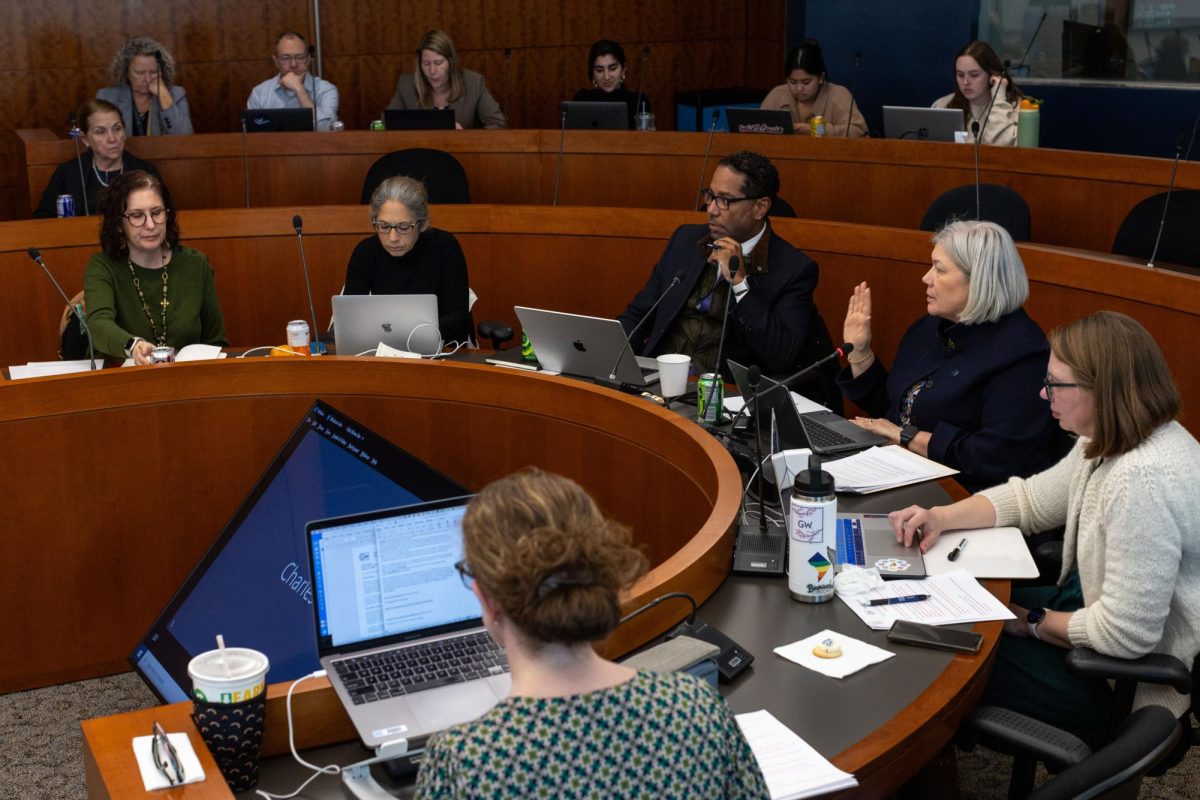Officials in the Corcoran School of the Arts and Design implemented social distancing regulations for students with special access to the facilities to complete projects.
Kym Rice, the interim director of Corcoran, said students working on capstone projects and faculty and staff in the District who agree to the strict COVID-19 testing protocol will receive limited access to labs and studios at Corcoran. She said she anticipates fewer than 50 students will receive access to a studio space for the fall.
She said in order to meet health and safety standards, approved students can access the building on assigned days, and the building will be open to those students between 9 a.m. and 6 p.m.
“Other students, even those who live locally, will not be permitted access to campus or Corcoran spaces,” Rice said in an email. “The Flagg Building will not be open to the public at any time this semester.”
Rice said officials are working to ensure no room, floor or building will exceed 25 percent occupancy at any given time. She said officials are still working to finalize the full details of guidance, but studios and labs have had furniture removed and rearranged to keep students separated six feet apart.
Rice said officials have planned for staff members to print necessary materials for students to limit the number of people in spaces like the printing area.
Anyone who breaks the University’s policies jeopardizes access for everyone and will be “held accountable” through the Office of Student Rights and Responsibilities, according to a school-wide update from Rice. The website states decisions will be specific to each case and may include “warnings, censure, probation, public health education and the possibility of immediate and/or long-term removal from the University.”
The website also states that faculty have planned their courses to include materials that students already have or can purchase.
“All of your faculty have experience producing work within less than ideal spaces, so students will certainly benefit from their faculty members’ collective experiences,” the website states. “Since students will not be on campus, we will not give assignments that would require them to have access to expensive equipment.”
Officials have removed fees for courses that may have required supplies for printing and physical spaces, according to the website. The website states that fees for virtual classes have been cut in half to cover the cost of the digital platforms needed to hold classes.
Robert Baker, the program head of the music department and an associate professor of music, said access to studio space is “critical” for seniors preparing their thesis projects.
He also said it is his “responsibility” to work in the program space to ensure that its “tangible assets are secure.”
“Someone needs to be there to make sure the gear we have invested in is secure so that when we return, we are ready to be in our learning spaces, safely and productive right away,” he said in an email.
Baker said as the head of the department, he will teach from his studio space this semester with “better technology” and “a better piano,” along with the music resources from personal and University scores.
Susan Sterner, the assistant director for academic affairs at Corcoran and the director of graduate studies for the new media photojournalism program, said at a town hall meeting for juniors and seniors that students with permission to access Corcoran’s studio spaces should not be “afraid” to not come in if they are feeling unwell.
She told students at the town hall meeting to “err on the side of caution” when deciding to access Corcoran’s studios to “keep each other safe and healthy.” Sterner said professors will not penalize students for falling behind if they are feeling unsure or anxious about the pandemic.
“That’s the whole reason we’re doing all of this, is to stay healthy, and you’re not going to be penalized if you fall a little bit behind because you’re unsure or even anxious,” she said. “You have to honor all of that for the sake of keeping yourself safe and healthy and for everyone else, for the whole community.”








